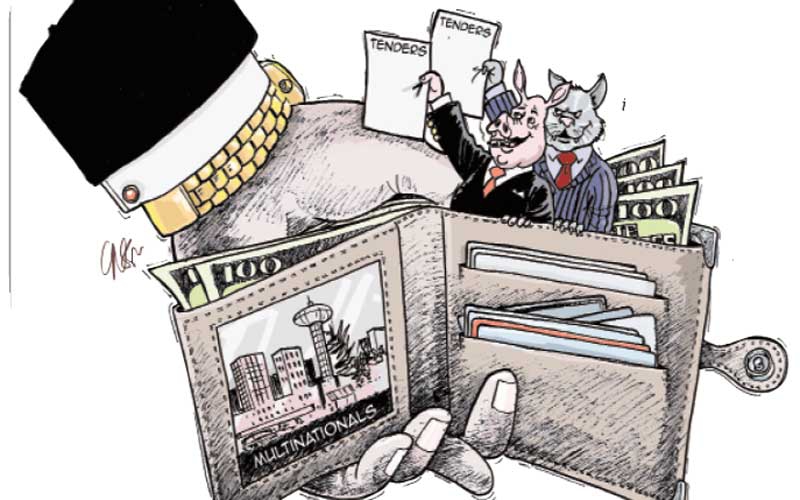×
The Standard e-Paper
Stay Informed, Even Offline

One of the most accurate cartoonist’s impression of a poor Kenyan’s access to the national cake is a caricature of water gushing out of a high-pressure hosepipe into the wide mouth of a politician. Emaciated and suffocating under the weight of the leader’s body, a poor man struggles to catch the little drops that miss the politician’s mouth.